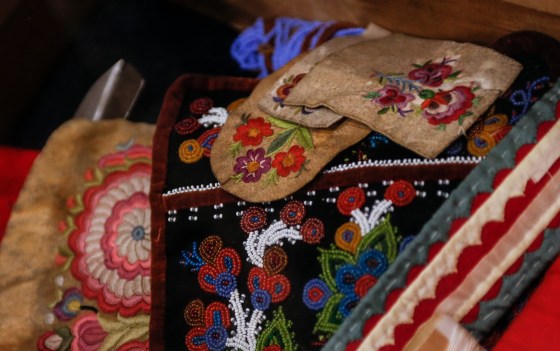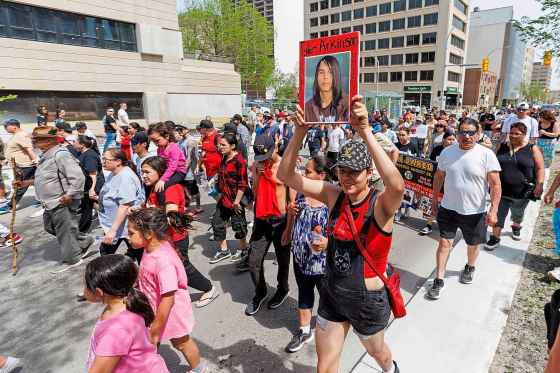FIVE STORIES ON TURTLE ISLAND
1. In addition to a record three Indigenous faces appointed to cabinet, Mark Carney appointed former Yellowknife mayor and newly elected Northwest Territories Liberal MP Rebecca Alty his minister of Crown-Indigenous relations.
It’s been 30 years since NWT last had a federal minister (Ethel Blondin-Andrew), and Alty’s appointment was met with excitement by northerners. A bittersweet re-appointment was the shuffling of now-former Minister of Indigenous Services Patty Hajdu to Jobs and Families.
2. The federal election is over and First Nations leaders are now pressing Mark Carney’s government to fulfill his election promises – and specifically his vow to recognize a human right for water.
Many Indigenous leaders are showing cautious optimism in Carney, who at times on the election trail seemed less enthusiastic about reconciliation than his predecessor, former Prime Minister Justin Trudeau.
I’ve written and spoken with regularity about how Carney’s agenda may be “build, baby, build,” but he must first adopt “reconcile, baby, reconcile” if he wants to get anything done.
3. The treatment of items crucial to Indigenous culture and history and held by non-Indigenous institutions were a high topic of discussion this week, as Indigenous leaders called on the new Pope to return thousands of artifacts held at the Vatican.
Meanwhile, there continues to be much anxiety about the treatment of thousands of items of historical and cultural significance to Indigenous peoples and Canadians as the Hudson’s Bay Company prepares to auction off its assets.
It seems every week researchers in universities continue to learn how dynamic and rich Indigenous history is — as well as how these contributions impact Canadian life today.

Artifacts displayed in the Hudson’s Bay Company (HBC) Gallery at the Manitoba Museum in Winnipeg, seen in April. (John Woods / The Canadian Press files)
4. A fascinating and little-known discussion is emerging on the issue of wild pigs in Manitoba, who have been labelled an “invasive species” by governments and other agriculture and conservation groups — resulting in calls for a national action plan.
A few weeks ago, at the online national conference called the Canadian Wild Pig Summit II, advocates are now hearing that Indigenous consultation and involvement will be essential for the success of the plan.
Wild pigs now have a large presence on treaty lands in Alberta, Saskatchewan and Manitoba, and are impacting Indigenous and Canadian biodiversity, farmland, livestock and public safety.
5. It’s graduation time and Indigenous students all across Turtle Island will be finishing their journeys at educational institutions – bringing up once again the presence of the wearing of traditional clothing at graduations.
In Canada, this is not really a controversial practice, but in the U.S.A. it definitely is. In some jurisdictions, like the United States, this remains controversial, with school officials refusing to allow the practice and states passing laws to protect the practice.
Even the ACLU has weighed in on the issue, releasing a primer on the rights of Indigenous students to wear tribal regalia at their graduations and the 14 U.S. states that protect the wearing of traditional clothing.
IN PICTURES

The Southern Chiefs’ Organization leads a march along Broadway on Tuesday afternoon, from the Canadian Museum for Human Rights to the Manitoba Legislative Building, to honour the lives and raising awareness for missing and murdered Indigenous men and boys. (Mike Deal / Free Press)
RECONCILI-ACTION OF THE WEEK
Every week I highlight an action, moment, or milestone forwarding reconciliation, illustrating how far Canada has come – and how far the country has yet to go.
This week I just want to send thanks to all of the first responders, hotel staff and leadership fighting forest fires and flooding which are causing the displacement of Indigenous communities. I’ve written a number of times about how this is related deeply to climate change.

Smoke from wildfires is seen as an emergency truck passes other vehicles in an image taken from a video posted on Facebook by Peguis First Nation earlier this month. (Peguis First Nation)
As the summer comes and the world heats, a disproportionate number of First Nations, Inuit and Métis communities across Canada (many of whom are in Manitoba) are hit with disasters. Many are bracing now. Many situations emerged this week. Some disasters are at the whim of luck.
Many will brace for on-and-off-again states of emergency. A huge gichi-miigwech and thanks (pre-emptive and otherwise) for everyone this summer who will be meeting, helping and working with Indigenous peoples displaced by disasters.
If reconciliation teaches us anything: we are all in this together and during times of struggle we realize this even more.
|

